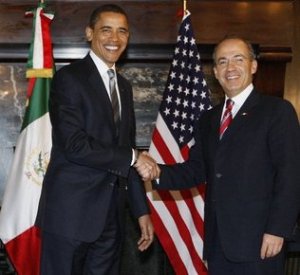“Brazil is portrayed as the poster child for Latin American potential, while Mexico is the symbol for what’s gone wrong.” Rodrigo Lara Serrano from AMERICA ECONOMIA Worldcrunch
Mexico’s population currently living below poverty exceeds 51 % CIA worldfactbook whereas its “big brothers” (Canada and USA as members of NAFTA) only note a level below 10 %.
Around half a million Mexicans enter the USA a year to find a better life there, many of them illegaly. (guardian)
What attracts people to be involved in the drug business?
Patrick Radden Keefe, a journalist of the New York Times wrote an interesing article about how a cartel makes its money. Did you know that a kilo of cocaine produced in Colombia and worth $2000 increases its value to around $10000 when it enters Mexico? Incredibly.
But did you also know that it will be worth more than $30.000 when it crosses the border of the United States and then even $100.000 if you sell it in gramms?! Not only one kilo is smuggled every year. Imagine there are tons of kilos. Cartels earn revenues estimated somewhere in the billions of $ dollar.
Mexico’s drug war
After becoming president in 2006 Felipe Calderon started the drug war against the cartels and many of their members were killed or arrested.
“Since December 2006, nearly 48,000 people have been killed in drug-related violence in Mexico” CNN
According to CNN Calderon and Bush had made an agreement to fight against drug business. The Merida Initiative (named after the Mexican city where the two met) had included a U.S. pledge of $1.5 billion between 2008 and 2010. Current President Obama had requested to expand this program in 2011 with investing more millions to enable the provision of aircrafts, inspection tools and other sophisticated drug-detecting technology to the Mexicans.
The normal worker’s life
An unskilled worker earns between $300 and $500 net income a month according to worldsalaries.org. Many families in Mexico are very big with many relatives. Imagine $300 for 5 people a month. Is that enough for a living?
If you had the choice between working around 12 hours a day and earning that little that it is hard to feed your family and on the other hand you can earn millions within the drug business and probably buy something special for your little daughter or your mother. What would you choose?
“it has never been the objective…of the public-security strategy to end something that it is impossible to end, namely the consumption of drugs or their trafficking…” former Mexican president Calderon 2012


